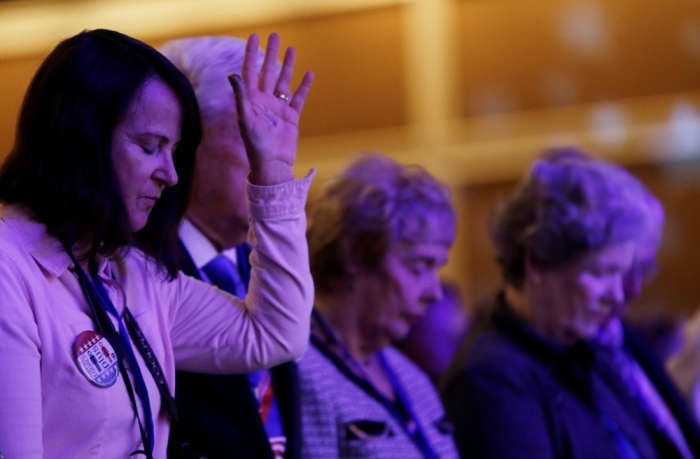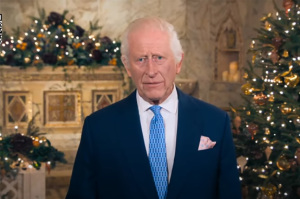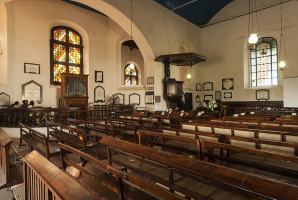Westminster Theological Seminary President: Christians Need to Stand Up in Public Square, Politics to 'Reclaim Judeo-Christian Heritage'

Speaking at Westminster Theological Seminary's second-ever "Real State of the Union" conference last Saturday, three Christian scholars stressed to attendees that it is time for Christians to faithfully stand up in the public square and reclaim America's Judeo-Christian heritage from what has become a prominently secular society.
"I am calling on all believers to have a recommitment to the truth of Christ to speak the truth and love, to be who we are and to engage in justice by being committed to justice and seeing to it by speaking in the public square," Westminster Theological Seminary President Peter Lillback said. "We are not forcing ourselves into a place that we don't belong. This public square was created by this Judeo-Christian heritage that we are speaking about."
Lillback set the tone for the day-long conference, which was held at First Presbyterian Church in Bonita Springs, Florida, with an event-opening speech providing a rundown of how America has transformed from a country that was discovered and founded on Christian values to a society that now largely mocks and ridicules Christians who act in accordance to their religious beliefs.
"We are now in a day that was much like what first century Christians faced in a pluralistic world that was antagonistic to their Christian values," Lillback told The Christian Post. "We aren't even beginning to pay the price that our forefathers did for their faith."
"Yes, we will be persecuted. Yes, we will be criticized. Yes, we will be assaulted. But Jesus said, 'Be glad and rejoice for that is what they did to the prophets before you,'" Lillback continued.
Providing an example of how the government is now treats Christians and their faith, Lillback highlighted the military chaplain who was "condemned" in December for talking about his faith during a suicide prevention class.
Lillback explained that although many secularists today claim that religion has no role in government or the public sector, America's Founding Fathers actually intended for the country to be one where politicians and public officials are free to make decisions based on their faith.
Lillback points out that the Founding Fathers specifically included four references to God in the Declaration of Independence and opines that they are indications that more trust needs to be put into God when it comes to leading and governing a nation that is supposed to be free of tyranny.
"So its been observed that the four references to God actually reflect the very form of government that the Constitution will eventually create," Lillback said. "There are lawgivers. God is a giver of law. There are judges. God is the supreme judge. There are executives. God is the executor of his will through providence."
Lillback added that God is also present in the Constitution, although others might disagree. Things such as the president having the option to take Sundays for sabbath and the president having to swear on the Bible when he takes his oath of office are clear reminders of how the Founding Fathers intended for the light of God to help drive the success of the nation, and protect it from human imperfection.
"Some people have said that the Constitution is a godless constitution, but it's actually remarkably Christian in many ways," Lillback asserted. "The most Christian element of all the Constitution is the lack of trust in human nature. All the ways in which there are checks and balances and there are different branches of government and the severance of power. Those are a recognition that man has basically corrupted and he will be even more corrupted when he has power."
Lillback further explained that Christianity was a crucial part of public education and helped fuel the country's Judeo-Christian morals up until the 1890s, as half of the boards of public universities were comprised of clergymen.
"When you get to the 1890s with the Holy Trinity case, you get to the highwater mark for Judeo-Christian value structure. But at this point, this is where we begin to see the movement from the very highest levels beginning to de-christianize the Universities," Lillback said. "They began to push theological and seminary studies out of the universities and replaced it with the study of religions. Over time, it becomes more and more committed, not to deism but ultimately a form of practical atheism to where atheism became the prevailing view of our universities. That begins to take hold in the progressive era in the early 1900s."
Harry Reeder, senior pastor at Briarwood Presbyterian Church in Birmingham, Alabama, followed Lillback's historical rundown with his speech on the "downward spiral of the culture."
Secular viewpoints became dominant in America in the later half of the 20th century and now 21st century pluralistic and post-modern culture has created hostility towards the same morals and values that America was founded on.
Following Reeder's lecture, Bruce Waltke, a reformed evangelical professor of Old Testament and Hebrew, told the audience that Christians and the church need to be far more active in politics than they currently are.
"[Waltke's] Impact has been enormous. In studying the Proverbs, he has come to the conclusion that the church ought to be far more involved in the public square and the political activity if we take the teaching of the Proverbs seriously," Lillback explained. "I think it is quite a statement for a Biblical theologian, because he is moving out of his normal sphere to say, 'These principles really do matter for what we are doing as a country.'"





























